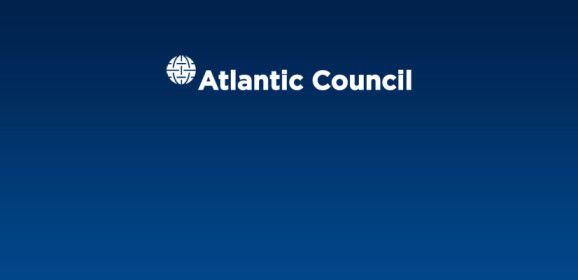Section: Research Organizations & Think Tanks about Ukraine
EU considering emergency brake for EU migration to the UK
EU considering emergency brake for EU migration to the UKThe Financial Times reports that the EU is considering the possibility of an emergency brake on EU migration to the UK if it overwhelms public services. The proposal would build on existing safety valves within the EU Treaties around free movement which allow states to curb migration on...
Russian Tourism Chief Accused of Hypocrisy Over Beach Advice
Onetime owner of two holiday homes in the Seychelles is in hot water for urging his compatriots to vacation at home. …read more Source: Transitions Online...
Australia and Kazakhstan: a Steppe Forward for Bilateral Ties
Central Asia does not fit comfortably in Europe or the Middle East and can present a challenge for Australian policymakers. However its largest and wealthiest state presents an interesting avenue for Canberra to engage more closely with the region. Kazakhstan, the world’s largest landlocked country and home to over seventeen million people,...
Georgia’s Once Powerful Former Ruling Party Is in Danger of Fragmentation
United National Movement (UNM), Georgia’s once powerful political party, which spent nine years (2003–2012) in power, is in serious trouble. The start of December 2015 brought new revelations of the party’s internal power struggle and fragmentation, which turns out to be much deeper than previously believed. On December 3, the...
Russian, NATO Maritime Deployments Intensify off Syria
Despite differing political agendas in Syria’s ongoing civil war, Russia and the members of the North Atlantic Treaty Organization (NATO) are now sending significant naval forces to Syria’s Mediterranean coastline. The eastern Mediterranean is becoming crowded, as ten countries, in addition to Russia and Turkey, currently have...
Even in Theater, War and Displacement Has No Room in Ukraine
As I was walking up Kyiv’s colorful Andriyivsky descent on December 6, three explosions pierced the quiet evening. No one stopped examining the myriad souvenirs on sale in the booths lining the street, no one showed any fear or ran for cover. On the third explosion, one exasperated man exclaimed “Who the hell is blowing up those...
Biden to Ukraine: “The United States stands firmly with the people of Ukraine”
“Today Russia is occupying sovereign Ukrainian territory. Let me be crystal clear: the United States does not, will not, [and] never will recognize Russia’s attempt to annex the Crimea,” US Vice President Joe Biden said in a December 8 address to Ukraine’s parliament.The parliament gave Biden a standing ovation. Geoffrey...
The IMF Outfoxes Putin: Policy Change Means Ukraine Can Receive More Loans
Today the Executive Board of the International Monetary Fund (IMF) will reverse its “policy on not lending into arrears.” Historically, the IMF has refused to lend to any country that has not serviced its debt to any sovereign. The IMF staff started contemplating a rule change in the spring of 2013 because nontraditional creditors,...
Why improving your own performance isn’t always good for the team
Arsene Wenger: anti-doping, but is he right that it automatically improves group performance? Ronnie Macdonald, CC BYDoping in sports often gives us intriguing insights not only into how we think about right and wrong, but also into our intuitions about performance. In the aftermath of the latest doping scandal, for instance, Arsene Wenger,...
COP21 and the carbon market menace
(Image: Shutterstock) Carbon markets are unlikely to merit even a single mention in a Paris climate change agreement, but the idea of trading emissions has not gone away. Market advocates have simply found new code-words for referring to a practice that guarantees a fight in international climate negotiations. So they’ve hedged their bets –...








